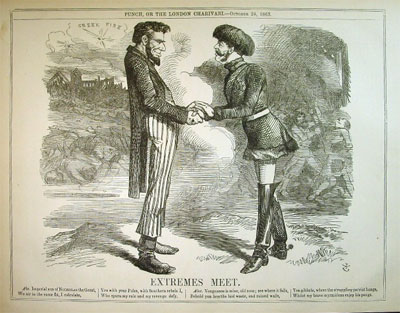|
|
JUDAH BENJAMIN: THE BIG JEW
OF THE CONFEDERACY By
Mike King - tomatobubble.com 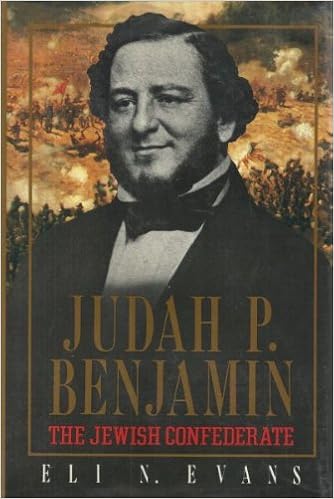 Benjamin's influence was immense. Why
has he been all but erased from history? "Judah P. Benjamin was known as "the brains
of the Confederacy," its "court Jew," "the statesman of the Lost Cause," and even "the
Confederate Kissinger. As, successively, Attorney General, Secretary of War and Secretary of State in
the Confederate Cabinet, he was President Jefferson
Davis' closest and most trusted adviser."-
The New Orleans Times Picayunne / 'The Confederate Kissinger' / April 20, 2010 When we think of the Confederacy, the big names that automatically come
to mind are the three legends carved into the side of Georgia's Stone Mountain: President Jefferson
Davis, General Robert E. Lee and General Stonewall Jackson. Significant
figures for sure, but in the grander power-scheme of things, these men, including President Davis himself, were outranked
by Judah P. Benjamin. The fact that Benjamin's name is so relatively unknown is, ironically, testament
to the awesome "behind-the-scenes" power that he wielded. Unfortunately for the South (and the
North), Benjamin's influence served neither of the Americas. His loyalties were elsewhere - in Rothschild's
London!    Benjamin's image never made it to Stone Mountain, but his 'mug-shot'
did appear on Confederate currency and bonds! When we think of the Confederacy, the big names that automatically come to mind are the three legends
carved into the side of Georgia's Stone Mountain: President Jefferson Davis, General Robert
E. Lee and General Stonewall Jackson. Significant figures for sure, but in the grander
power-scheme of things, these men, including President Davis himself, were outranked by Judah P. Benjamin.
The fact that Benjamin's name is so relatively unknown is, ironically, testament to the awesome "behind-the-scenes"
power that he wielded. Unfortunately for the South (and the North), Benjamin's influence served neither
of the Americas. His loyalties were elsewhere - in Rothschild's London!    Benjamin's image never made it to Stone Mountain, but his 'mug-shot'
did appear on Confederate currency and bonds! Before and during the War Between the States, there is Jewish influence supporting both the cause of Northern Unionism and Southern Secession. Louisiana Senator John Slidell is not Jewish (at least not outwardly), but his family ties to elite European Jewry run deep. Slidell’s daughter is engaged to Baron Frederic Erlanger, a French Jewish financier based in Paris. Erlanger helps to fund the Confederacy, gouging the South with usurious interest rates and fees too! (here) Erlanger's financing of the South, as confirmed even by contemporray New York Times articles, is directly linked to the House of Rothschild. (here) Pappa-in-Law Slidell would later serve the Confederate States government as foreign diplomat to Great Britain and French Emperor Napoleon III. Now the niece of the influential Senator is married to northern financier August Belmont (Schönberg)- Rothschild’s Jewish boy and Democrat boss supporting the Northern cause, at least at first. After the war, “Confederate” Slidell will make his “Unionist” nephew-in-law Belmont his political protégé. Also hooked up with Senator Slidell in this tangled North-South-Rothschild knot of financial-political intrigue is fellow Louisiana Senator Judah Benjamin, the Jewish big-shot who goes on to become the Confederacy’s Attorney General, then Secretary of War, and then Secretary of State. Through the shadowy fog of 150 years of elapsed history, we can now discern a pattern of divide & conquer, balance of power conspiratorial actions being played upon both sides - and with tragic consequences.
 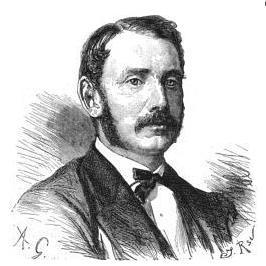   Senator Slidell – His Jewish Son-in-Law Erlanger – His Jewish Northern Nephew-in-Law Belmont, and Jewish fellow Senator Benjamin form an incestuous North-South connection with direct links to the House of Rothschild.
BATTLE OF BULL RUN / SOUTH WINS; BUT FAILS TO FOLLOW-UP WITH ‘KNOCK-OUT BLOW'
If the South is to have any chance of gaining independence, it will have to win early, before the more industrialized and populated North can outlast them. The first battle of the war at Bull Run (Manassas, Virginia) is therefore critical. To make a long story short, the rebels force a Union retreat that soon turns into a full rout. The Battle of Bull Run will soon be referred to by some as “The Battle of Yankee Run". The Union Capital, Washington DC, is just miles away and now essentially undefended. It is the South’s for the taking. The capture of DC and other parts north would have delivered a huge psychological blow to the North. Because many northerners aren’t in favor of the war anyway; the capture of DC might very well have ended the war that same year. But instead of finishing the job, someone has decided to spare the Capital - a decision that inflames the Southern press and leads to bitter finger-pointing. The ‘fall-guy’ for this blunder will be War Secretary Leroy Walker. But in reality, it is the ex-war hero, ex-War Secretary and current Confederate President Jefferson Davis who calls the shots, not the young Walker. But it is also known that Davis relies heavily on the advice from the man whose intelligence and gift-of-gab he is awed by – Jewish Attorney General and former Louisiana Senator Judah Benjamin, referred to by critics as, “Davis’s pet Jew”. (here) Was it Judah Benjamin, the man so admired by Solomon de Rothschild, (here) who may have whispered poison in Davis’s ear, telling him not to take DC and thus blowing the chance to win the game early for the South? And after Walker has been made the scapegoat and fired; who replaces him as War Secretary? None other than Judah Benjamin!
. 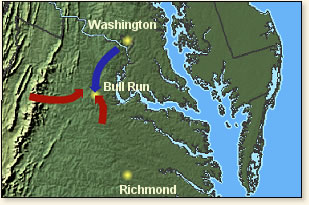  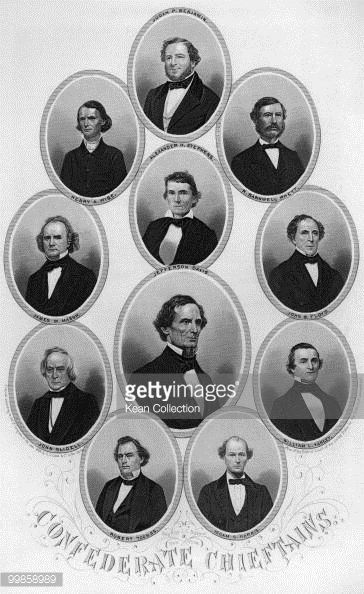 1 & 2 - After Bull Run turned into a rout, Washington DC – just 30 miles away – could have been captured. Whose idea was it to halt? That of Davis -- or his trusted "adviser" Benjamin? 3 - Engraved portraits (from 1861) of the South's chieftains depict Judah Benjamin at the very top (!) with Jefferson Davis in a bigger circle but down lower. Sleazy Slidell with the Rothschild agents for in-laws is to the left of Davis.
Could the new War Secretary Benjamin's subsequent 1861 interference with the Generals, - acts so controversial that they would force a Congressional investigation - and his bizarre refusal to supply them as requested have been a ploy designed to prolong the war until Rothschild could bury both sides in debt, before sending the Family's British and French hit-men to divvy up' America into two spheres? Establishment historians will later claim that Benjamin's stubborn defiance of the Generals was due to a lack of supplies in the South. But given how early it was in the war, the claim that supplies were low seems like a cover story. If "lack of supplies" had been the cause of Benjamin's decisions, Generals Stonewall Jackson and P. G. T. Beauregard would not have had reason to dislike Benjamin as they did.
Could the new War Secretary Benjamin's subsequent 1861 interference with the Generals, - acts so controversial that they would force a Congressional investigation - and his bizarre refusal to supply them as requested have been a ploy designed to prolong the war until Rothschild could bury both sides in debt, before sending the Family's British and French hit-men to divvy up' America into two spheres? Establishment historians will later claim that Benjamin's stubborn defiance of the Generals was due to a lack of supplies in the South. But given how early it was in the war, the claim that supplies were low seems like a cover story. If "lack of supplies" had been the cause of Benjamin's decisions, Generals Stonewall Jackson and P. G. T. Beauregard would not have had reason to dislike Benjamin as they did. Such a delaying scenario would fit perfectly with a Rothschild plan to have a long war, one in which both sides could be indebted and weakened before the British & French can arrive.
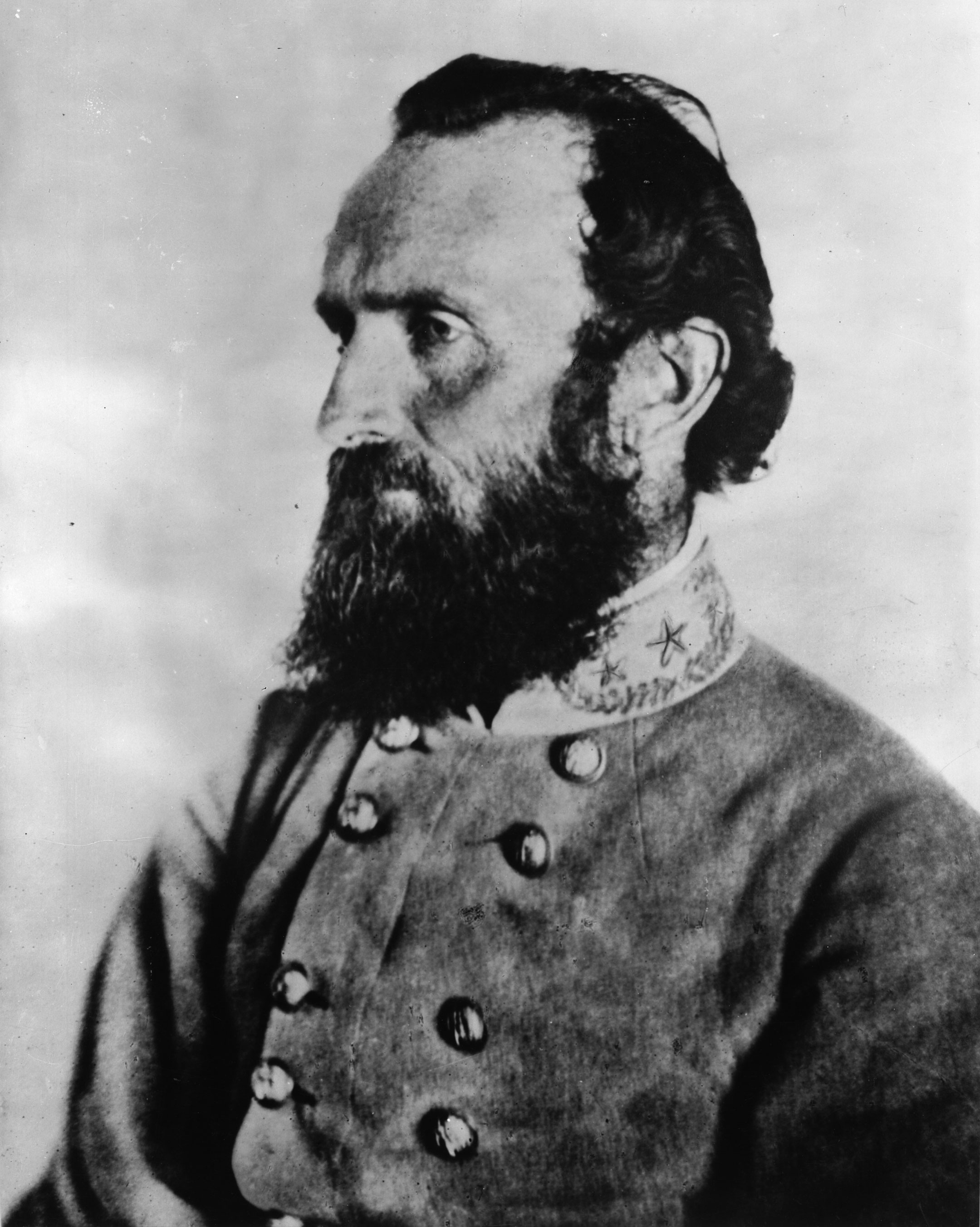  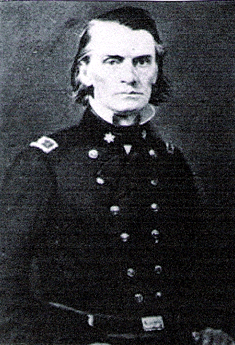
Generals Jackson, Beauregard and Wise all hated Judah Benjamin. That in mind, let’s take a closer look at the shady Mr. Benjamin. Outwardly, the esteemed Jefferson Davis is the ‘top dog’ of the South – the President of the Confederate States of America. But behind the scenes, Judah Benjamin, with his European connections, 'gift of gab' and impressive intellect is, in the grand scheme of things, more powerful than Davis. What the banking agent Alexander Hamilton had been to George Washington, the trusted Benjamin is to Davis, and then some. Like Hamilton, Benjamin was also born a British subject (West Indies). There is simply no exaggerating the influence of Judah Benjamin. Biographer Eli Evans wrote that Benjamin: "...achieved greater political power than any other Jew in the nineteenth century — perhaps even in all American history." Historian Charles Curran, in a 1967 issue of ‘History Today" wrote: "Judah Philip Benjamin must be bracketed with Disraeli, who was his contemporary, as the ablest Jewish politician ever born under the British flag. But his career outdid Disraeli’s in audacity. Benjamin lived three lives in one." Judah is a plantation owner, slave-owner and originally a Senator from Louisiana - as was the aforementioned and equally European-connected John Slidell. Although he has no military experience, Benjamin is named the South’s Secretary of War in 1861, after having served as Attorney General for several months. Many in the South will come to loath and mistrust Benjamin. The great General Jackson once threatened to resign over conflicts with Benjamin (here) - who was commonly referred to in the South as “Mr. Davis’s pet Jew". (here)
But certain people in Europe had a much higher opinion of Benjamin. In 1861, Salomon de Rothschild - grandson of dynasty founder Mayer Amschel Rothschild - during a visit to Louisiana describes Benjamin as: “the greatest mind in North America.” (here) That pretty much tells us all we need to know about the “southern rebel” Judah Benjamin! In the fall of 1859, de Rothschild, the son of Baron James de Rothschild of Paris, had come to the United States as a tourist. His travels in the North and South are recorded in a series of letters to his cousin Nathaniel in London. Rothschild met with prominent politicians (surely with Benjamin!) and commented
on the issues of the day. His views were "pro-Confederate" and his letters urged cousin Nathan to use
the family's influence to gain the recognition of the Confederacy by the European powers.  Rothschilds for Dixie? - Sing it! - "Oh I wish
I were in the land of Matzo..." Solomon Rothschild (l) urged Nathan Rothschild (who resembles Judah Benjamin) to support the South. EXCERPT: "The European states should indeed intercede in order to avoid bloodshed which would be useless
and very detrimental to their commerce..... What is astonishing here, or rather, what is not astonishing, is the high position occupied by our co-religionists, or rather by those who were born into the faith and who, having married Christian women, and without converting, have forgotten the practices of their fathers. Judah P. Benjamin, the Attorney General
of the Confederate States, is perhaps the greatest mind on this continent. H.M. Hyams, the lieutenant
governor of Louisiana, Moyse, the Secretary of the Interior, etc. And what is odd, all these men have a Jewish
heart and take an interest in me, because I represent the greatest Jewish house in the world."
(here) http://www.jewish-history.com/salomon/ JUDAH BENJAMIN's EUROPEAN PLOT In 1862, Benjamin, under intense Congressional pressure, is forced to resign as War Secretary. Jefferson Davis then appoints his beleaguered adviser as the South’s Secretary of State! In this position, Benjamin will work with Slidell and Slidell’s French Jewish son-in-Law Erlanger to secure not just financing from the Rothschild syndicate, but also to induce the direct involvement of Rothschild’s Britain & France into the war, on the side of the South. A joint British & French entry into the war would have tipped the scales in favor of the South, and ultimately led to two American nations, both under foreign influence. Lincoln and his Secretary of State, William Seward block Judah Benjamin's scheme by turning to Russia for help. In a clear message to his old Rothschild-funded foes from the Crimean War, Czar Alexander II stations the better part of his Pacific fleet in San Francisco, and a portion of his western fleet in New York. The British & French instigators of the Crimean War get the message and are forced to back off. Judah Benjamin and the Rothschild financiers are thus thwarted. Together, Alex and Abe have defied the London Bankers and will both pay a heavy price for it. After the war, in recognition of, or payback for, Russia’s help in keeping Britain & France out of the war; Seward will arrange for the purchase of Alaska from Russia after the war – an act dismissed at the time as “Seward’s Folly”. But now we know the reason for the “folly".
 
1- The presence of Russian fleets in San Francisco and New York kept Judah Benjamin's British and French attack dogs at bay. 2- Seward's Folly was Union payback to Russia.
OCTOBER, 1864 THE CHICAGO TRIBUNE ACCUSES AUGUST BELMONT AND THE ROTHSCHILDS OF PLOTTING AGAINST THE UNION
On 16, October 1864 on page 2, The Chicago Tribune reported:
BELMONT'S CONFEDERATE BONDS (Excerpt) "It is perhaps somewhat flattering to our national pride to know that the Rothschilds, who hold up every despotism in Europe, have concluded that it would be cheaper to buy up one of our political parties (Democrats), and in that way secure the dissolution of the Union, than to have their agents in England and France interfere and fight us. But Irishmen and Germans have a something, which for brevity we will all a 'crop,' and this fact sticks in their crop, that the oppressors of Ireland and Germany, the money kings of Europe, not daring to carry out their first pet project of breaking down this Government by the armed intervention, of England and France.
Let Belmont state over his own signature,
if he can that he and Rothschilds have not, directly or indirectly, in their own name, or in that of
others, operated in Confederate stocks during this rebellion. Until he can face the music in that style it matters
little what tune any of the Copperhead penny whistles may be authorized to blow, as they are very seldom
authorized to state anything that is true."     ALL CONNECTED! Slidell – Erlanger – Belmont – Benjamin
DID JUDAH BENJAMIN KILL LINCOLN? In the closing days of the American Civil War, a massive conspiracy to decapitate the U.S. government results in the assassination of President Lincoln by an actor with ties to secret societies. John Wilkes Booth shoots Lincoln in the back of the head as Lincoln and his wife watch a play at Ford’s Theatre. Booth escapes. On the same night of Lincoln’s murder, Lewis
Powell, an associate of Booth, attacks Secretary of State William Seward in his home.
Seward is stabbed in the face and neck before other men in the house subdue Powell. Seward’s wife Frances
dies two months later from stress caused by seeing her husband nearly killed. Vice President Johnson and General Ulysses S Grant were also to have been killed. The “conspiracy theorists” of the day point the finger at Judah Benjamin, (here) who burns the official papers of the Confederate Secret Service right about this time. (here) Thanks to Bennie the Burner, the full story of Confederate clandestine services, and most likely the Lincoln assassination, may never be known.
1 & 2: Abe and Alex both paid with their lives for defying the Rothschilds. Judah Benjamin was suspected of engineering the Lincoln assassination. 3 - "Extremes Meet" - British Press mocks Abe and Alexander's cooperation.
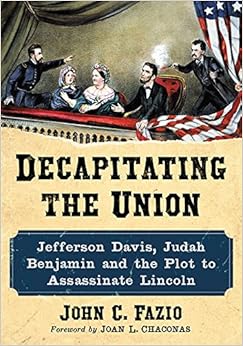  
Lincoln's alliance with the Rothschild family's most hated enemy, Russia, and his printing of interest-free 'Greenbacks" to finance the war were big "no-no's" that got him killed. John Fazio's 'Decapitating the Union' supports the belief of many during that time that Judah Benjamin was the mastermind of the plot.
BENJAMIN
BUGS OUT As the south collapses, Benjamin stays in the home of a Jewish merchant in South Carolina while final surrender negotiations drag on. Here, Benjamin abandons President Davis's plan to fight on, telling him that the cause is hopeless. When negotiations fail, Benjamin remains part of the group around Davis that moves on with the President. At one point, Benjamin (under suspicion for involvement in Lincoln’s assassination) tells Davis that he needs to separate from the Presidential party temporarily, and go to the Bahamas to be able to send instructions to foreign agents. He reassures Davis that he will rejoin him in Texas. According to historian William C. Davis, "the pragmatic Secretary of State almost certainly never had any intention of returning to the South once gone". (here) When he bades Postmaster Reagan goodbye, the Postmaster asks where Benjamin is going. Benjamin replies: "To the farthest place from the United States, if it takes me to the middle of China." (here) While other Confederate leaders, including the trusting fool Jefferson Davis, are being jailed and abused, Benjamin arrives in London before traveling to Paris - where his wife and daughter had been sent to live years before the war had even started. Benjamin then moves back to England and will enjoy a very profitable career and “second life” as an attorney, until his death in 1884. Congressman John Wise, son of Confederate General and Virginia Governor Henry Wise, wrote a highly popular book about the South in the Civil War in 1899, The End of an Era. In it, he stated: "(Benjamin) had more brains and less heart than any other civic leader in the South ... The Confederacy and its collapse were no more to Judah P. Benjamin than last year's bird's nest." (here) Unfortunately for historians, and fortunately for the Rothschilds, Benjamin, exactly as he had done with papers pertaining to the Confederacy’s secret services in 1865, also burned his personal papers shortly before his death in 1884.
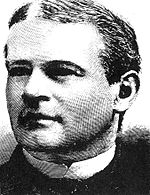  
1 & 2 - John Wise's ‘End of an Era’ expresses the true Southern feeling toward
the fleeing scoundrel Judah Benjamin, to whom the South was like "last year's
bird's nest." 3 - After abandoning his Confederate colleagues and the people of the South, Benjamin the "British" Barrister went on to enjoy a hugely successful 2nd career in Rothschild’s London -- where he was a contemporary of Karl Marx and Benjamin Disraeli.
Now that you know the story of "The Confederate Kissinger" -- the reason his name is so little known should no longer be a mystery.
|


